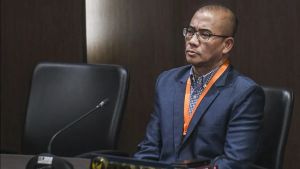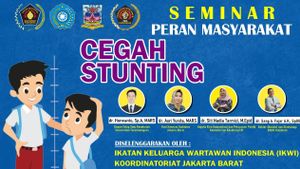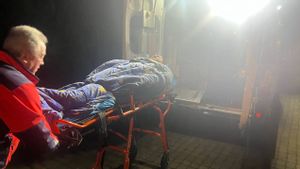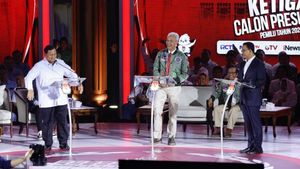
JAKARTA - The work from home (WFH) policy and restrictions on other activities that have been implemented in Jakarta - in an effort to suppress the transmission of COVID-19, have actually been able to reduce the amount of waste. A program called Samtama, which used to run full of difficulties, is now rolling smoothly. Interestingly, we can continue this good thing, even later when life goes normal.
Head of the Environmental Service, Andono Warih, said that the tonnage of waste to the Bantargebang TPST was reduced by 650 tonnes per day from a total of seven thousand tonnes of waste normally produced since the WFH policy was implemented on March 16. That means, almost 10 percent less waste.
"The decrease in tonnage or weight of waste is 620 tonnes per day on average. The decrease is compared to the daily average data for the period 1 to 15 March 2020 with the daily average after the WFH policy," said Andono when confirmed, Thursday, April 9.
Andono explained that the reduction of waste piles comes from commercial sources such as hotels, shopping centers, restaurants, offices, public facilities, and tourist attractions.
Reducing waste, said Andono, is a good thing. Therefore, Andono appealed to the community to be even more active in reducing waste, especially with the conditions in which most of the residents do their activities at home.
"We can implement a waste reduction strategy, namely the joint responsibility waste program or Samtama. This program emphasizes the activities of reducing, sorting and processing waste carried out by the community as waste producers," he said.

Continue
First, the front door strategy at the pre-consumption stage. Before shopping, people must know and be aware of what they want to consume in their minds. If it produces large amounts of waste, there is no need for consumption.
Second, namely the middle door strategy. All leftover items are not hurriedly thrown into the trash. People are advised not to take food excessively so that the potential for waste is reduced.
Third, the back door strategy. Discipline in sorting waste is the key, for example organic waste goes into the composter or biopore holes. Inorganic waste that can be recycled is collected temporarily at home.
"When the COVID-19 outbreak subsides and the situation is relatively safe, it can be saved at the nearest waste bank. Inorganic waste, such as cans, bottles, used cardboard boxes, can be stored temporarily and relatively safe because it does not rot," said Andono.
The English, Chinese, Japanese, Arabic, and French versions are automatically generated by the AI. So there may still be inaccuracies in translating, please always see Indonesian as our main language. (system supported by DigitalSiber.id)








